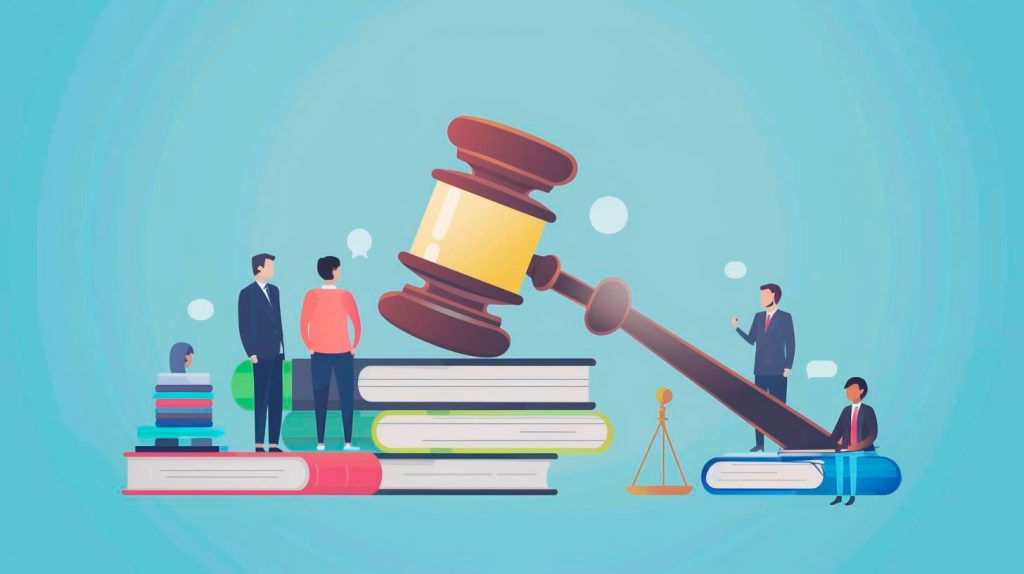
Separating Fact from Fiction: Debunking the Myths Surrounding Credit Scores and Government Assistance
In this article, we will debunk some of the common myths and provide you with the facts.
Myth: Your Credit Score Determines Your Eligibility for Government Assistance
One of the most common myths surrounding credit scores is that they play a significant role in determining your eligibility for government assistance programs. The reality is that government assistance programs, such as Medicaid and food stamps, are based on your income level and household size, not your credit score. Your credit score is not taken into consideration when applying for these programs.
According to a report by the Urban Institute, only 35% of low-income individuals have a credit score above 620. This means that relying on credit scores as a measure of eligibility for government assistance would leave many individuals without the help they need.
Fact: Your Credit Score Can Impact Your Ability to Access Financial Services
While your credit score may not determine your eligibility for government assistance, it can impact your ability to access financial services such as loans and credit cards. Lenders often use credit scores as a measure of your creditworthiness and may deny you access to credit if your score is too low.
According to a survey by the Federal Reserve, 43% of Americans have subprime credit scores, which can make it difficult for them to access credit on favorable terms. This can further exacerbate financial hardship for individuals who are already struggling to make ends meet.
Myth: Checking Your Credit Score Can Hurt Your Score
Another common myth is that checking your credit score can hurt your score. In reality, checking your own credit score is considered a “soft inquiry” and does not impact your score. Only “hard inquiries” from lenders when you apply for credit can have a small, temporary impact on your score.
According to a report by the Consumer Financial Protection Bureau, only 52% of Americans have checked their credit score in the past year. This lack of awareness can lead to misunderstandings and prevent individuals from taking proactive steps to improve their credit health.
Fact: Improving Your Credit Score Can Benefit You in the Long Run
While your credit score may not determine your eligibility for government assistance, improving your score can benefit you in the long run. A good credit score can help you access better financial products and services, such as lower interest rates on loans and higher credit limits on credit cards.
According to a study by Experian, individuals with credit scores above 740 are more likely to be approved for credit cards with high credit limits and lower interest rates. By taking steps to improve your credit score, you can position yourself for greater financial success in the future.
It is important to separate fact from fiction when it comes to credit scores and government assistance. While your credit score may not determine your eligibility for government programs, it can impact your access to financial services. By understanding the facts and taking proactive steps to improve your credit health, you can set yourself up for greater financial stability in the long run.
Remember, if you have any questions or need legal assistance regarding your credit score or government assistance programs, don’t hesitate to reach out to our team of experienced lawyers. We are here to help you navigate the complex world of credit and finance.
The Impact of Welfare Benefits on Credit Scores: What You Need to Know
However, what many do not realize is that these benefits can also affect their credit scores.
When it comes to credit scores, there are several factors that can positively or negatively impact them. One of these factors is the type of income a person receives. Welfare benefits are considered non-traditional income sources, and this can have varying effects on an individual’s credit score.
The Impact of Welfare Benefits on Credit Scores
While welfare benefits are essential for those who rely on them for survival, they can have both positive and negative effects on credit scores. On one hand, receiving welfare benefits can help individuals meet their basic needs, such as food and shelter, which can improve their overall financial stability. This can lead to a positive impact on credit scores by reducing the likelihood of missed payments or defaults on loans.
On the other hand, welfare benefits are considered non-traditional income sources by lenders, which can make it difficult for individuals to qualify for loans or credit cards. This can limit their ability to build credit and improve their credit scores over time.
Benefits of Welfare Benefits on Credit Scores
Despite the challenges that welfare benefits may pose to credit scores, there are also benefits to consider. For example, individuals who receive welfare benefits may be eligible for programs that can help them improve their credit scores, such as financial counseling or debt management services.
Additionally, some lenders may take into account a person’s overall financial stability when evaluating credit applications. This means that even if an individual receives welfare benefits, they may still be able to qualify for certain loans or credit cards based on other factors, such as employment history or savings accounts.
Statistics on Welfare Benefits and Credit Scores
- According to the U.S. Department of Agriculture, more than 38 million Americans receive food stamps each month.
- In 2020, the unemployment rate in the United States reached a record high of 14.7% due to the COVID-19 pandemic.
- A study by the Consumer Financial Protection Bureau found that individuals who receive unemployment benefits are more likely to have lower credit scores compared to those who are employed.
Overall, the impact of welfare benefits on credit scores is complex and multifaceted. While these benefits can provide much-needed assistance to those in need, they can also present challenges when it comes to building and maintaining a good credit score. It is important for individuals to understand how welfare benefits can affect their financial health and to explore options for improving their credit scores over time.
As a law blogger, it is essential to provide accurate and up-to-date information on topics such as welfare benefits and credit scores to help educate and empower your readers. By understanding the impact of welfare benefits on credit scores and highlighting both the challenges and benefits, you can help individuals make informed decisions about their financial future.
Common Misconceptions Understanding the Relationship Between Credit Scores and Welfare Benefits
In this blog post, we aim to debunk myths and shed light on the true relationship between credit scores and welfare benefits.
Myth: High Credit Scores Disqualify Individuals from Receiving Welfare Benefits
One of the most prevalent misconceptions is that individuals with high credit scores are automatically disqualified from receiving welfare benefits. This belief stems from the misconception that government assistance programs prioritize individuals with poor credit scores over those with excellent credit. However, the reality is that credit scores are not a determining factor in eligibility for welfare benefits.
Government assistance programs, such as Medicaid, Supplemental Security Income (SSI), and Temporary Assistance for Needy Families (TANF), have specific income and asset requirements that dictate eligibility. These programs do not consider credit scores when determining eligibility, as creditworthiness is not a relevant factor in assessing an individual’s need for welfare benefits.
Fact: Credit Scores Do Not Impact Eligibility for Welfare Benefits
The truth is that credit scores have no bearing on an individual’s eligibility for welfare benefits. Government assistance programs are designed to provide support to individuals and families in need, regardless of their credit history. Eligibility for welfare benefits is primarily based on income, assets, household size, and other relevant factors that demonstrate financial need.
It is important to note that while credit scores may be used by lenders to assess creditworthiness for loans and credit cards, they are not utilized in determining eligibility for government assistance programs. Individuals should not be deterred from applying for welfare benefits based on misconceptions about credit scores.
Benefits of Understanding the Relationship Between Credit Scores and Welfare Benefits
Understanding the true relationship between credit scores and welfare benefits can have several benefits for individuals seeking assistance. By debunking myths and misconceptions, individuals can make informed decisions about applying for government assistance programs and accessing the support they need.
- Increased Awareness: By understanding that credit scores do not impact eligibility for welfare benefits, individuals can become more aware of their rights and options for support.
- Improved Financial Planning: Knowing that credit scores are not a barrier to receiving government assistance can help individuals better plan their finances and access the resources they need to thrive.
- Reduced Stigma: Debunking misconceptions about credit scores and welfare benefits can help reduce the stigma associated with seeking assistance and empower individuals to seek the support they deserve.
It is essential for individuals to understand that credit scores are not a determining factor in eligibility for welfare benefits. Government assistance programs are designed to provide support to those in need based on income, assets, and household size, not creditworthiness. By debunking myths and misconceptions, individuals can make informed decisions about applying for welfare benefits and accessing the support they need to thrive.
Dispelling the Stigma: How Welfare Benefits Can Help Improve Credit Scores
In fact, welfare benefits can provide crucial support to those in need, including helping to improve credit scores.
One of the key benefits of receiving welfare benefits is the financial assistance it provides. This can come in the form of cash assistance, food stamps, housing vouchers, and other forms of support. For individuals who are struggling to pay their bills and make ends meet, welfare benefits can provide much-needed relief and help them avoid falling further into debt.
But did you know that welfare benefits can also play a role in improving credit scores? Many people are unaware of this fact, but receiving welfare benefits can actually have a positive impact on your credit score. By using welfare benefits to pay off debts, make timely payments, and manage expenses responsibly, individuals can begin to rebuild their credit and improve their financial standing.
The Link Between Welfare Benefits and Credit Scores
It is important to understand the connection between welfare benefits and credit scores. Welfare benefits can provide individuals with the financial support they need to meet their basic needs and pay off outstanding debts. By using these benefits wisely and responsibly, individuals can begin to demonstrate positive financial habits that can ultimately help improve their credit score.
For example, using welfare benefits to make timely payments on bills and debts can help individuals avoid late fees and negative marks on their credit report. Additionally, using welfare benefits to pay off outstanding debts can help lower their debt-to-income ratio, which is a key factor in determining credit scores.
The Benefits of Improving Credit Scores
Improving your credit score can have a number of benefits that can help you achieve financial stability and independence. A higher credit score can make it easier to qualify for loans, credit cards, and other forms of credit at favorable interest rates. This can help individuals access the financial resources they need to purchase a home, buy a car, or invest in their education.
In addition to making it easier to access credit, a higher credit score can also lead to lower insurance premiums, better job opportunities, and improved housing options. By taking steps to improve your credit score, you can open up a world of opportunities and improve your overall financial well-being.
- Access to credit at favorable interest rates
- Lower insurance premiums
- Better job opportunities
- Improved housing options













So basically, being on welfare doesn’t automatically make your credit score trash?
Missing a payment can definitely hurt your credit score, whether you’re on welfare or not. It’s important to always pay on time.
It’s a common misconception, but in reality, welfare benefits are not considered when calculating your credit score.
Yup, as long as you’re making your payments on time and managing your credit responsibly, being on welfare won’t affect your score.
But what about if I miss a payment while on welfare? Will that hurt my credit?
Wait, so you’re saying I can still get a good credit score even if I’m on welfare?
Yo, I heard that getting welfare benefits can mess up your credit score. Is that true?
I always thought that being on welfare was a red flag for creditors. Guess I was wrong, huh?
Nah, that’s a total myth. Getting welfare benefits has no impact on your credit score.
Exactly. Your credit score is based on your credit history and financial behavior, not on whether you receive welfare benefits.